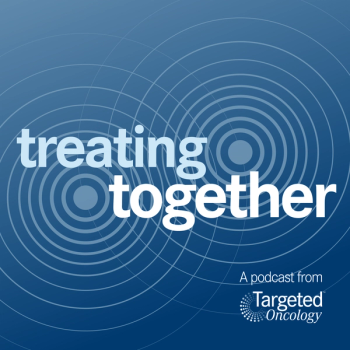
COVID-19 Leaves Its Mark on Oncology Care
In season 1, episode 5 of Targeted Talks, Debra Patt, MD, PhD, MBA, speaks with Alex Spira, MD, PhD, FACP, about the impact of the COVID-19 pandemic on community cancer centers and hospitals in the United States.
In season 1, episode 5 of Targeted Talks, Debra Patt, MD, PhD, MBA, oncologist and breast specialist, Texas Oncology, speaks with Alex Spira, MD, PhD, FACP, medical oncologist, Virginia Cancer Specialists, about the impact of the coronavirus disease 2019 (COVID-19) pandemic on community cancer centers and hospitals in the United States.
As a result of COVID-19, many have been scared to come into doctors’ offices even for cancer screenings. Patt and Spira explains that these issues are likely to cause a snowball effect in the oncology field. Delayed cancer screenings have caused delays in diagnosis, and late diagnoses caused more patients to be diagnosed with advanced stages of disease. Most importantly, Patt and Spira predict that COVID-19 will directly lead to increases in the number of cancer deaths over the next few years.
There are potential solutions to the problems that begin with patients understanding that it is safe to visit their doctor for well and sick visits. For primary care, consistent visits will ensure that cancer screenings are done, and any concerns are tested to make sure no malignancy is present. The more oncologists can see their patients, the better the chances are of them catching severe adverse events and identifying patients who have developed progressive disease. The physicians stated that for patients with cancer, it is important to address these issues right away.
With an option for vaccination from COVID-19 now approved, Patt and Spira also gave their opinions on which patients should be vaccinated and how the vaccination will impact circumstances in oncology as a whole.







































